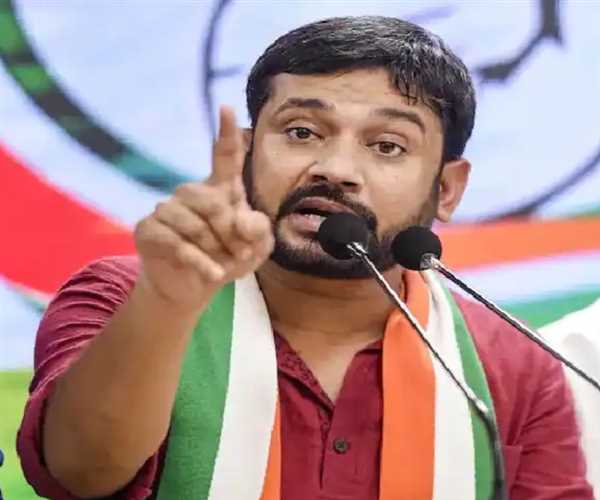Kanhaiya Kumar, a well-known political figure and former president of the Jawaharlal Nehru University Student Union, joined the Indian National Congress in January 2021. The move generated significant attention and speculation about his political aspirations and the reasons behind his decision to join Congress.
Kanhaiya Kumar's Background
Kanhaiya Kumar is known for his activism and political speeches that often focus on issues related to social justice, secularism, and democracy. He rose to prominence in 2016 after being arrested on charges of sedition in connection with a student protest at Jawaharlal Nehru University. The arrest sparked widespread outrage and protests, and Kanhaiya Kumar became a symbol of resistance against the government's perceived attempt to stifle free speech and dissent.

Reasons Behind Joining Congress
There are several reasons why Kanhaiya Kumar decided to join the Indian National Congress. Firstly, he has been a vocal critic of the ruling Bharatiya Janata Party (BJP) and its policies, particularly on issues related to social justice and secularism. By joining the Congress, he saw an opportunity to align himself with a party that shares similar values and has a history of working towards these causes.
Another reason behind his decision is the current political landscape in India. With the BJP in power at the center and in several states, there has been a growing concern among opposition parties and civil society organizations about the erosion of democratic institutions and the suppression of dissent. By joining the Congress, Kanhaiya Kumar is likely hoping to be a part of a larger movement that is working to protect the rights and freedoms of citizens and uphold the principles of democracy.
In conclusion, Kanhaiya Kumar joined the Indian National Congress for several reasons, including his political beliefs and values, his opposition to the ruling party and its policies, and the current political climate in India. As he continues his political journey, it will be interesting to see how he navigates the challenges and opportunities that lie ahead and what role he will play in shaping the future of Indian politics.